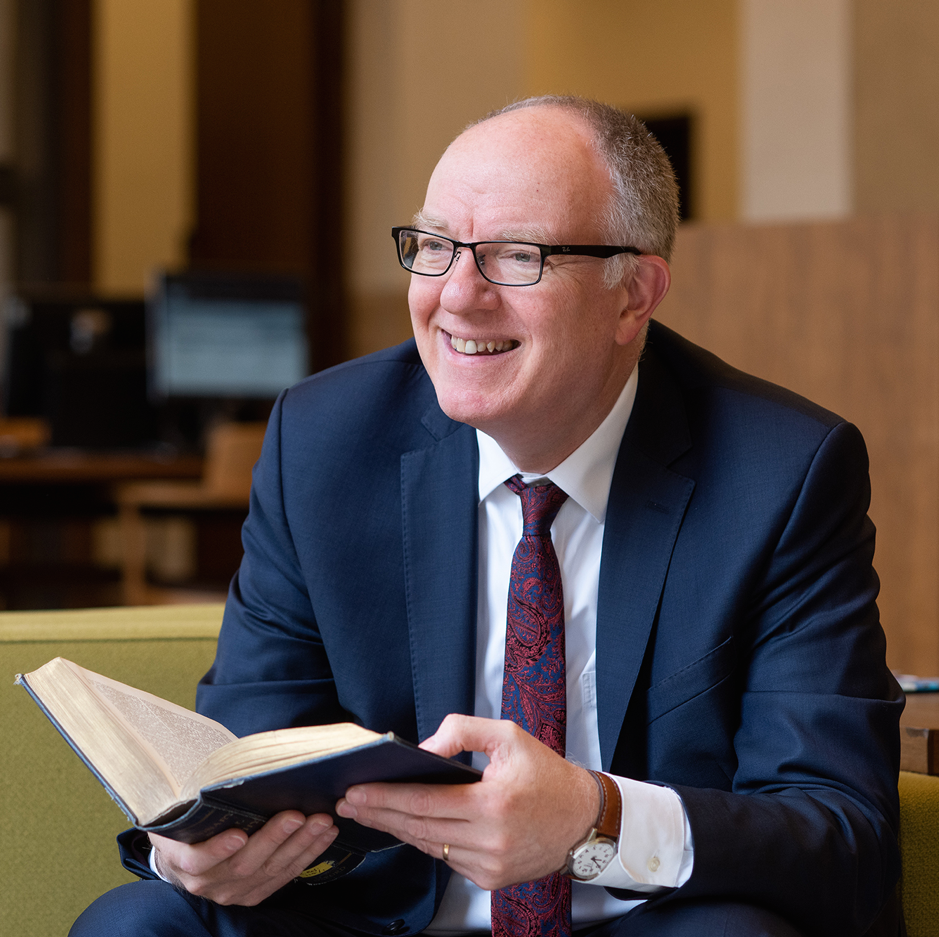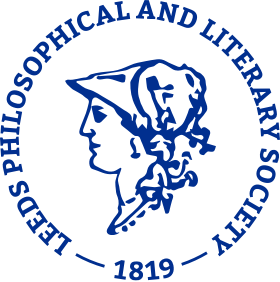Attacks on Knowledge from ancient Assyria to Ukraine
… and how to protect knowledge in a digital world
The Priestley Lecture 2022 with Bodley’s Librarian, Richard Ovenden OBE
In association with Mill Hill Chapel and The Leeds Library
Richard Ovenden OBE FSA FRSA, FRHistS, FRSE has held the traditional title of ‘Bodley’s Librarian’ at the University of Oxford since 2014. He is also Head of Oxford’s Gardens, Libraries and Museums and Director of the Bodleian’s ‘Centre for the Study of the Book’. He published ‘Burning the books’ in 2021 – an engaging 3000-year journey through the shocking destruction of knowledge and the courageous, inspiring struggle against all the odds to preserve it.
“A call to arms to protect and preserve knowledge. A fine and moving book which ranges widely across time and acts as a reminder of the importance of libraries to our culture” (comment by judges of the Wolfson History Prize 2021, for which the book was shortlisted)
From ancient Mesopotamia to social media of the twenty-first century, there have been those whose instinct and life work has been amassing and preserving knowledge and making it available to others. But collections of scrolls, papers, books and other records are vulnerable to accidental and deliberate destruction – by the ravages of time, by enemies, friends or the originators of the material. The long story told in ‘Burning the books’ covers many and varied examples of destruction through human history: catastrophic losses of great libraries, disposal of potentially incendiary records or memoirs, deletion of social media posts, and more. There are also tales of heroic attempts to rescue and reassemble collections, to make knowledge more readily available and keep open the possibility of humanity connecting with the past.
The talk concluded with a focus on current threats to knowledge and options for librarians who are having to confront the “digital deluge”: the overwhelming abundance of material that exists online. Can tech giants be trusted to act as custodians of human knowledge? How can we cope with formats that grow obsolete and therefore illegible to future generations, or the encrypted technologies that encourage policymakers and others to conduct their conversations via a medium that leaves no trace for posterity? How does an understanding of the deep history recounted in ‘Burning the books’ help to address these contemporary and future dilemmas?
Scientist, teacher and author on many topics, Joseph Priestley (1733-1804) was Minister of Mill Hill Chapel, Leeds for six years from 1767. During his time here, he carried on with experiments as a chemist while also writing on religion. He was the first Secretary of The Leeds Library.
He moved on to Birmingham. His support for the American and French revolutions incited an angry mob to set fire to his house. Priestley’s laboratory and library were lost in the blaze.

Richard Ovenden came to his current position via school in Kent, degrees at the University of Durham and UCL, and posts at Durham University Library, the House of Lords Library, the National Library of Scotland and the University of Edinburgh, where he was responsible for Collection Management, Special Collections and Archives, and for the University Museums and Art Gallery. His move to Oxford came in 2003 when he was appointed Keeper of Special Collections and Western Manuscripts at the Bodleian Libraries, and in 2011 became Deputy Librarian.
The library is named after far-sighted Sir Thomas Bodley (1545–1613) who invested in improving library buildings, gave some of his own collection to the University and appointed a librarian. The greatly enhanced library opened in November 1602. It has grown and changed in many ways over the intervening 420 years.

Other events you might be interested in...
Explore more

Grants
The Society makes grants both to individuals and to organisations in support of cultural and scientific activities which increase innovation, outreach and diversity in Leeds and its immediate area. It also supports local museums and galleries and publications relating to the city.

Events
Since 1819, the Phil & Lit has been inviting the people of Leeds to hear from knowledgeable and entertaining speakers. Many are leaders in their field of science, arts or current affairs. We also hold an annual Science Fair and organise occasional visits.



